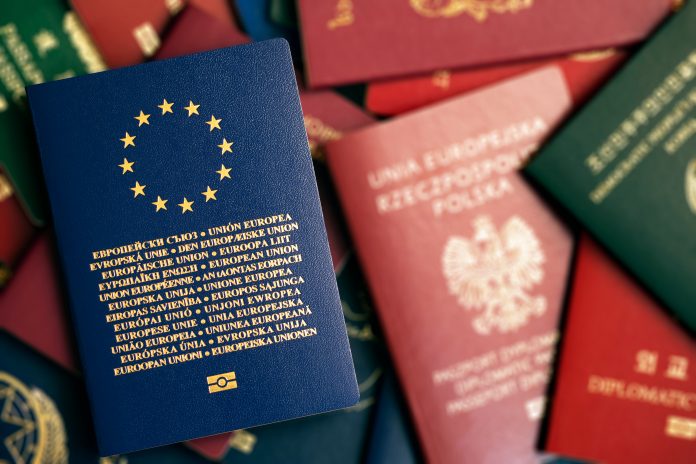The visa situation for English language students and teachers hoping to come to the UK is a bit of a minefield, says Melanie Butler, as she picks her way through the red tape
Nearly two-thirds of British people agree that EU children should be allowed to travel to the UK on school trips using their identity cards, according to a survey conducted by the Tourism Alliance, a lobbying body whose members include the British Educational Travel Association and the language school body English UK.
Since last year, issues with travel documents and visas have become a real headache for EU students and teachers wanting to visit the UK. That’s because of the double whammy of the UK Government banning the use of EU identity cards and withdrawing from the List of Travellers scheme. Instead, the Government said it would rely on the old group passport scheme, now so out of date that only two EU member states even issue them anymore.
Almost all EU countries issue ID cards though, even to children, and they can be used instead of passports throughout the Union. Not being able to travel on them particularly discriminates against poor children, whose parents can’t afford the extra expense; migrant children, who may carry a passport from a non-EU country; and anyone from a country like Italy, where it can take months to get a passport issued.
The result is predictable: European schools are avoiding the UK altogether and heading for Malta, Ireland and, according to some press reports, countries such as the Netherlands, where English is so widely spoken it’s almost a second language.
Much the same thing may happen with the summer schools. In fact, the director of one language school chain claims that Malta and Ireland are already filling up fast.
Does the British government care? It doesn’t look like it. In fact, it seems to believe that banning the use of EU ID cards is popular. And about that they are broadly right: 63% of respondents to the survey agreed. However, 61% also thought children on school trips or coming for English language courses should be exempt and 58% thought the same should apply to their teachers. The results of the survey were largely the same across all age groups, all regions of the UK and even among people who voted to leave the EU, as well as those that didn’t.
The Tourism Alliance has put forward a new plan for junior group travel with ID cards. Will the Government accept it? Probably not. After all, it has already turned down a request to allow EU teachers in for summer on a seasonal visa like fruit pickers.
“If no one in the UK wants to teach English, it’s probably because, like fruit picking, it involves long hours for low pay”
Something tells me that much of the British public would agree with them on that one. People understand that no one in the UK wants to pick fruit, but if no one in the UK wants to teach English, it’s probably because, like fruit picking, it involves long hours for low pay. However, since there are plenty of school teachers in the country who are free in the summer, they might want to earn a little extra – if only the job paid enough.
However, the solution for most summer schools has not been to put the money up and the hours down, but to aim for EU teachers with a different kind of visa: a Frontier Worker permit, which allows EU citizens and those from Switzerland, Iceland and Liechtenstein who worked in the UK before 31 December 2020 to continue doing so for now.
Will it work? Some schools seem very confident it will – certainly far more confident than I would be about the British immigration authority’s ability to process any paperwork on anything at all any time before the next election comes around.
Even if they do, why would EU teachers choose to work for what is often less than British minimum wage (when you add all the non-teaching duties in) when they can earn up to twice Irish minimum wage in Dublin without all the pastoral care, excursions and evening activities thrown in on top? Oh, and most Irish schools are offering subsidised accommodation as well.
We’re already hearing reports of EU teachers who worked year round in the UK who went home during the pandemic and are not coming back. After all, with British teachers banned from going to the EU to work, there are plenty of jobs in the EU. Not only are there very few native speakers there, but also local teachers who have taught in an English-speaking country are now in high demand.
I have no doubt when it comes to summer, many kids will head for the UK, as Ireland and Malta simply do not have enough schools to take them all. But will the UK have enough teachers to teach them?





